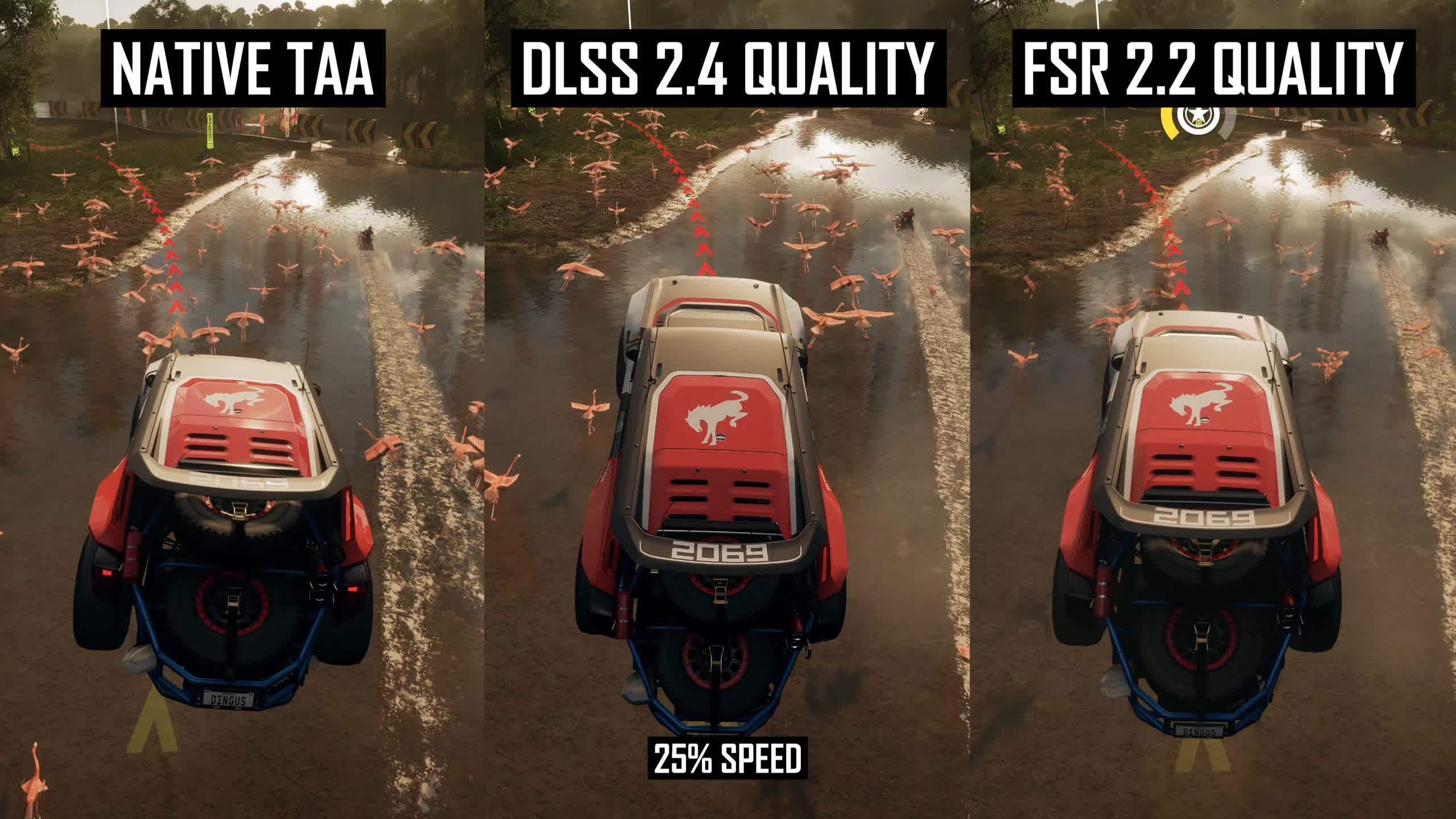Something to look forward to: AMD's FSR image upscaling technology has avoided using AI until now, which has been a double-edged sword in its competition against Nvidia's DLSS and Intel's XeSS. A recent interview with AMD's CTO indicates that the company plans to pivot sharply toward AI in 2024, with gaming upscaling as one area of focus.
AMD has confirmed that it's developing a method to play games with AI-based image upscaling. Although further details are scarce, this could potentially bring the company's solution closer to Nvidia's. In an interview on the No Priors podcast, CTO Mark Papermaster explained how AMD has deployed AI acceleration throughout its product stack and plans to introduce new applications to utilize it this year. "We are enabling gaming devices to upscale using AI and 2024 is a really huge deployment year," he said.
Nvidia DLSS, Intel XeSS, and AMD FSR allow gamers to increase the resolution at which they play while minimizing the performance impact. However, while DLSS and XeSS utilize hardware-assisted AI, FSR relies only on spatial and temporal information.
FSR's lack of AI has advantages and drawbacks. Although DLSS and XeSS tend to provide superior image quality with fewer artifacts, they require the proprietary hardware in Nvidia RTX and Intel Arc GPUs, respectively. Meanwhile, FSR supports all gaming devices, including consoles and graphics cards from any manufacturer.
Also read this TechSpot feature: Nvidia DLSS vs. AMD FSR Performance Compared
Papermaster's statement could indicate that FSR will soon be able to use the AI acceleration hardware in products like Ryzen CPUs, Radeon 7000 GPUs, and their successors, which might significantly improve image quality. However, AMD dislikes locking functionality down to specific hardware – a point Papermaster reiterated on the podcast – so it's unclear what devices an AI-powered FSR would be restricted to.
This and other developments could open a new stage in the competition between upscaling technologies. Their range of support has been inconsistent thus far, with many games only including one or the other, particularly at launch.
Microsoft also plans to unveil DirectSR at GDC 2024 later this month, an API that allows game developers to implement multiple super-resolution methods through a single codebase. The toolchain could lead to more titles supporting all upscaling methods, giving users more options based on their choice of GPU.
AMD is expected to launch RDNA 4 graphics cards and Zen 5 processors later this year, too, likely in the form of new Radeon RX 8000 GPUs, which are rumored to focus on mainstream and mid-range hardware tiers. Less is known about Zen 5, a.k.a. Ryzen 9000.
